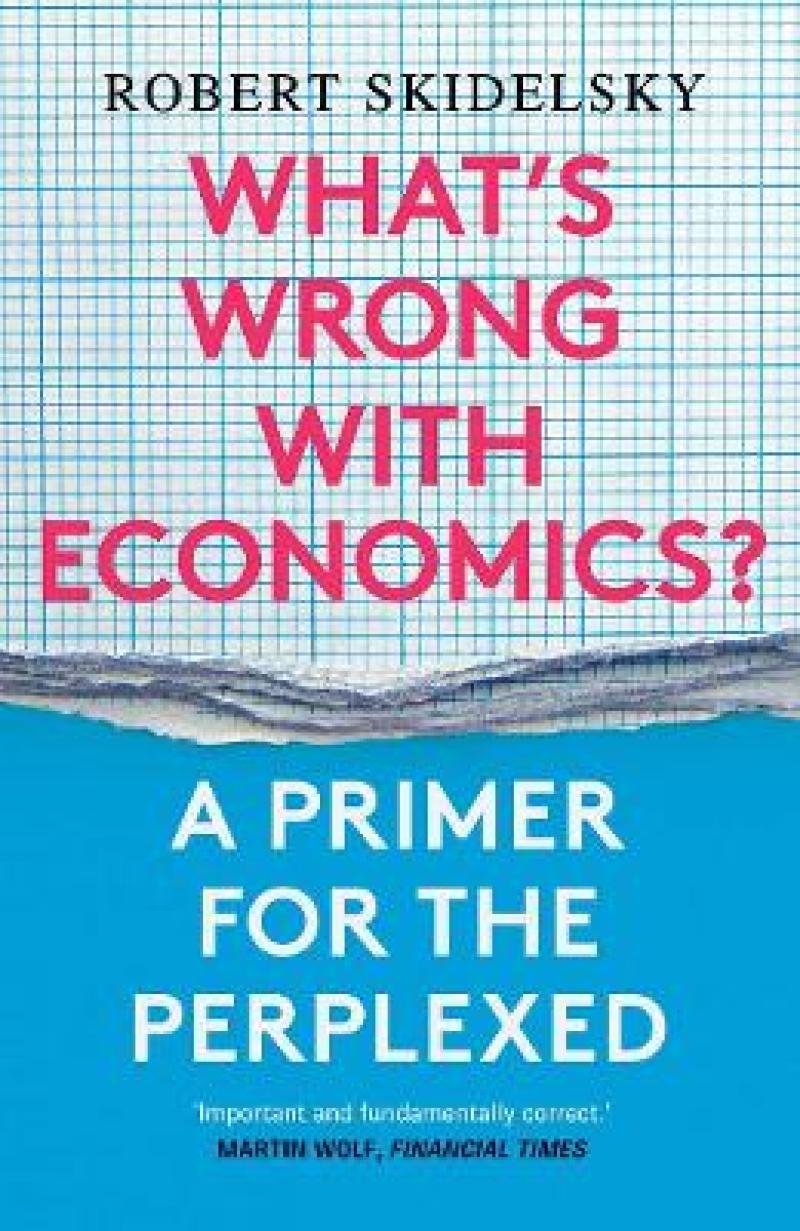“[A]n important and fundamentally correct critique of the core methodology of economics: individualistic; analytical; ahistorical; asocial; and apolitical.”—Martin Wolf, <i>Financial Times</i><br /><br />“This impassioned critique aims to show how economic laws have limited scope compared with the laws in natural science. To be effective, Skidelsky argues, economics must include institutions and their power, and move towards social sciences such as politics and sociology.”—Andrew Robinson, <i>Nature</i><br /><br />“[T]his book is a staple for trying to quench curiosity and a great bridge from a bachelor’s in standard economics to economic methodology and the philosophy of economics.”—Ella Needler and Maria João Pimenta, <i>Erasmus Journal for Philosophy and Economics</i><br /><br />“[Skidelsky] argues that the insights of behavioural economics, and other heterodoxies, are either ignored or treated as special cases of only limited relevance. All of this has resonance.”—Bridget Rosewell, <i>Society of Professional Economists</i><br /><br />“Skidelsky’s book is a much-needed contribution to the ongoing debate of the shortcomings of mainstream economics and its economic policy suggestions. . . . I think that the book should be essential reading not only for all students of economics but for everyone who is interested in a deeper understanding of major contemporary economic and political issues.”—Stavros A. Drakopoulos, <i>History of Economic Ideas</i><br /><br />“Robert Skidelsky has written the book that anyone who wants to learn economics—and anyone who thinks that they know economics—should read.”—Meghnad Desai, author of <i>Hubris: Why Economists Failed to Predict the Crisis and How to Avoid the Next One</i><br /><br />“This is a cogent and highly readable exposure of economics as a discourse, often free from the constraints of history and politics, and therefore free to inhabit an imaginary world underpinned by the seductive verities of logic and mathematics. It also helps to explain why 2008 took the whole world by surprise.”—Gareth Stedman Jones, author of <i>An End to Poverty?</i><br /><br />“Skidelsky gives a wonderfully readable, compelling and compassionate account of where economics goes wrong. This is an urgent message for all sides to hear.”—Nancy Cartwright, professor of philosophy, Durham University<br /><br />
This insightful book looks at how mainstream economics’ quest for scientific certainty has led to a narrowing of vision and a convergence on an orthodoxy that is unhealthy for the field, not to mention the societies which base policy decisions on the advice of flawed economic models. Noted economic thinker Robert Skidelsky explains the circumstances that have brought about this constriction and proposes an approach to economics which includes philosophy, history, sociology, and politics.
Skidelsky’s clearly written and compelling critique takes aim at the way that economics is taught in today’s universities, where a focus on modelling leaves students ill-equipped to grapple with what is important and true about human life. He argues for a return to the ideal set out by John Maynard Keynes that the economist must be a “mathematician, historian, statesman, [and] philosopher” in equal measure.
